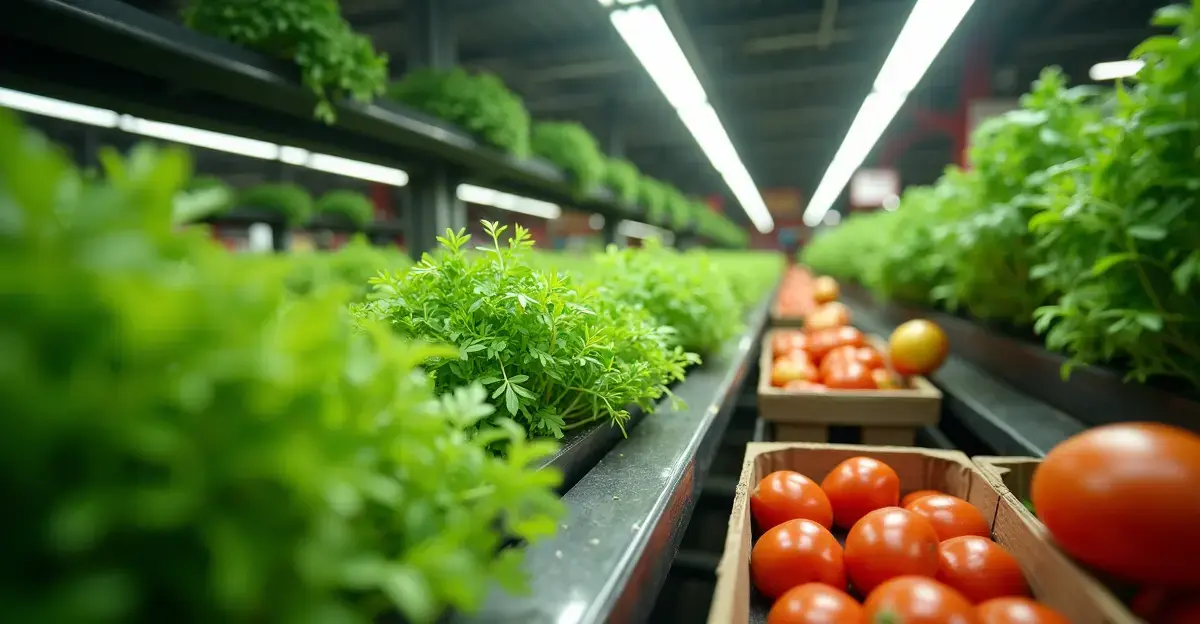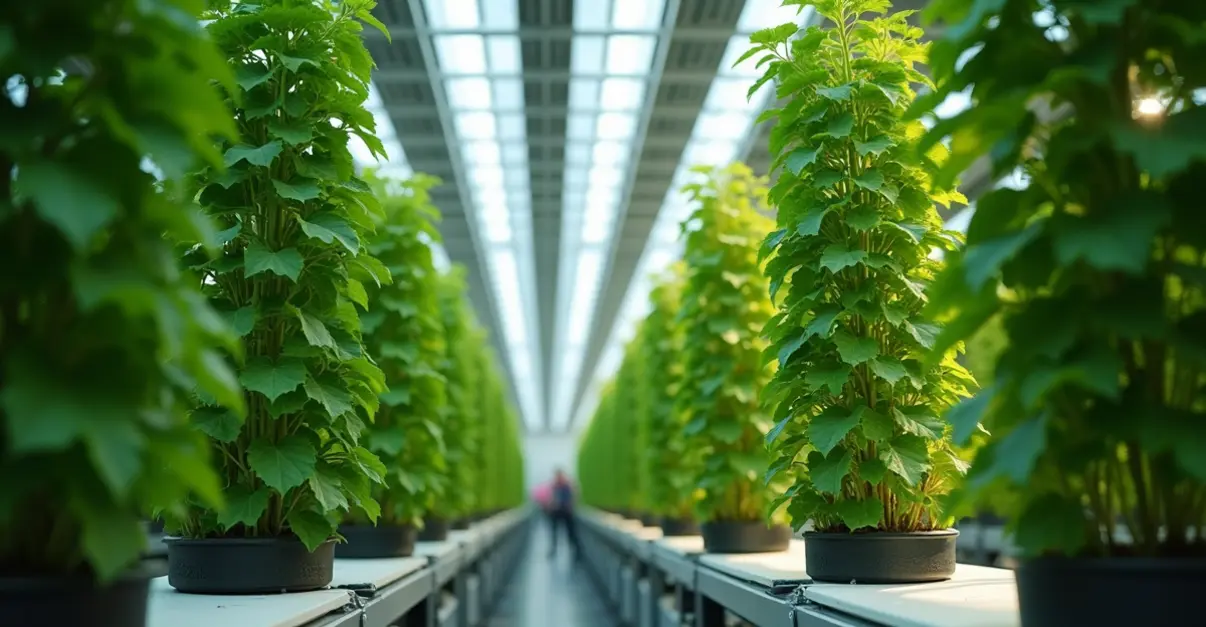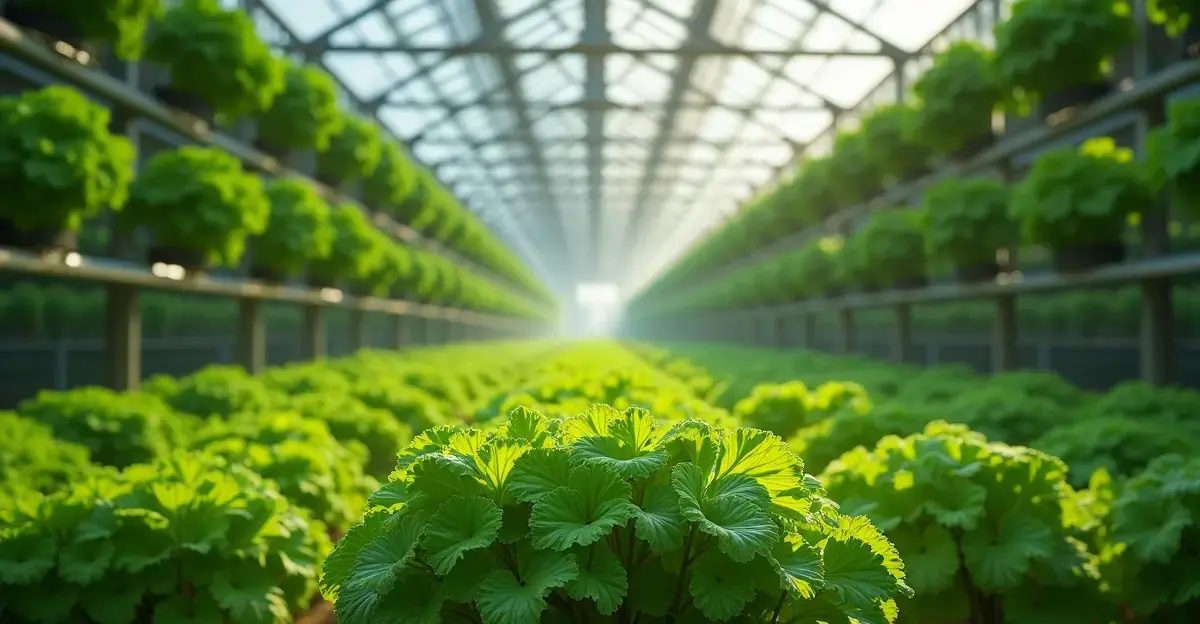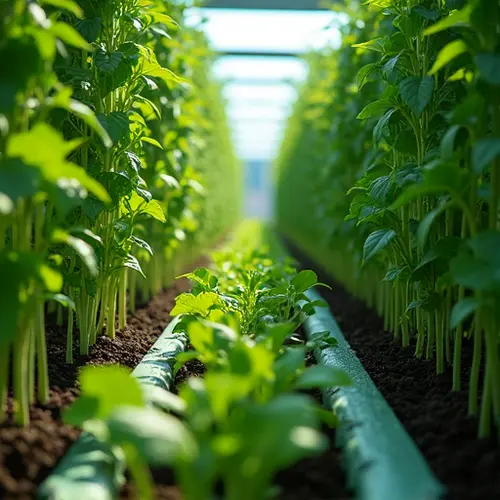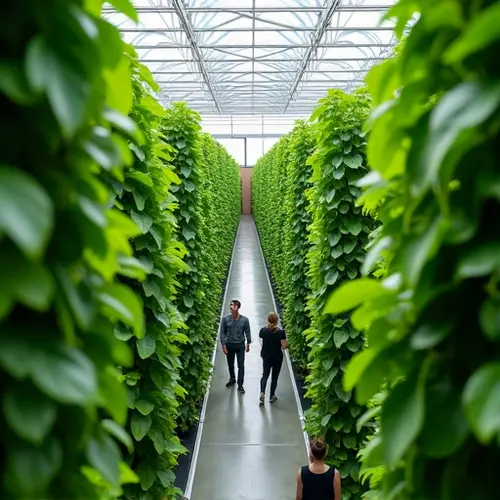Vertical Farming in Urban Supermarkets: The Future of Fresh Produce
Vertical farming, the practice of growing crops in vertically stacked layers, is revolutionizing urban agriculture. By integrating hydroponic systems directly into supermarkets, retailers can offer fresher produce while reducing transportation costs and environmental impact. This innovative approach is gaining traction as cities seek sustainable solutions to food security challenges.
The Rise of In-Store Hydroponics
Supermarkets like Bowery Farms and AeroFarms are leading the charge by installing vertical farms within their stores. These systems use controlled environments to grow leafy greens, herbs, and even strawberries year-round. The result? Produce that is harvested hours before it hits the shelves, ensuring peak freshness and nutritional value.
Benefits of Vertical Farming
Vertical farming offers numerous advantages:
- Sustainability: Uses 95% less water than traditional farming.
- Local Production: Reduces carbon emissions from transportation.
- Consistency: Eliminates weather-related crop failures.
- Space Efficiency: Maximizes yield in small urban footprints.
Challenges and Opportunities
Despite its promise, vertical farming faces hurdles such as high energy costs and limited crop variety. However, advancements in LED lighting and automation are addressing these issues. Companies like Plenty are even experimenting with strawberries, expanding the range of vertically farmed produce.
The Future of Food Retail
As consumer demand for fresh, locally sourced food grows, vertical farming in supermarkets is poised to become a staple. Retailers investing in this technology today are positioning themselves as leaders in the future of food.

 Nederlands
Nederlands
 English
English
 Deutsch
Deutsch
 Français
Français
 Español
Español
 Português
Português
